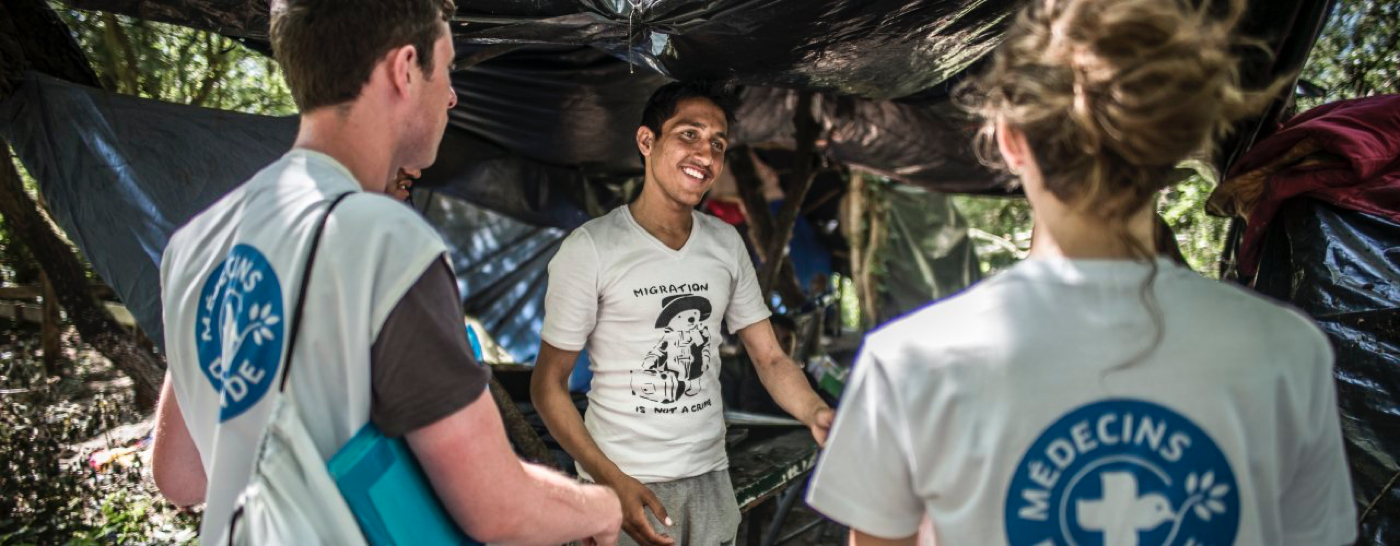The situation
Doctors of the World has supported refugees and migrants in and around Calais since 2003, longer than any other medical charity.
People in the camps and settlements here have limited access to toilets and showers, as well as little food and water. Whole families are often crammed into small tents, with many suffering awful health problems as a result. These include serious skin problems (such as scabies), gangrene, breathing difficulties and severe cases of diarrhoea. We also see people with injuries from climbing fences and falling off trucks, as well as from clashes with police and security forces.
In October 2016, the French government dismantled the main Calais camp completely and sent people to asylum reception centres around France. Many did not leave, but moved to informal settlements around Calais.
Our work
As numbers grew and conditions worsened, Doctors of the World launched an emergency response in June 2015, just as we would in any disaster zone or refugee situation in the rest of the world.
Volunteer doctors and nurses, including many from the UK, staffed an emergency clinic that saw on average 130 people per day. We also provided psychosocial therapy, hygiene kits and mobile clinics to smaller groups of refugees dispersed outside camps across the region. Mental health has become a major focus of our work – psychological distress is common among refugees and migrants who are dealing with traumatic events and living in difficult conditions. Almost two-thirds of the health problems we saw were related to conditions of living in the camp, while 1 in 5 were related to attempts to cross over to the UK.
We argued that these conditions amounted to a humanitarian emergency and called for French and British governments to respond accordingly. In November 2015 we won an important court case in collaboration with other NGOs, forcing the French government to identify unaccompanied minors in the camps and to provide healthcare, as well as provide more taps, toilets and rubbish collection points.
Since the dismantling of the main camp in Calais, we continue to monitor the situation for refugees in the area. In July 2016 we opened a dedicated psychosocial space, Butterfly House, in Dunkirk and we continue to deploy a mobile medical clinic in and around Dunkirk.
In 2015 our medics in and around Calais carried out:
- 11097 medical consultations
- 1,153 referrals to the local hospital
- 349 referrals to A&E
